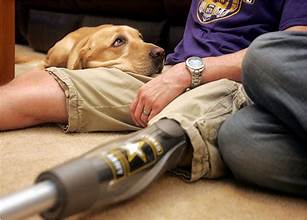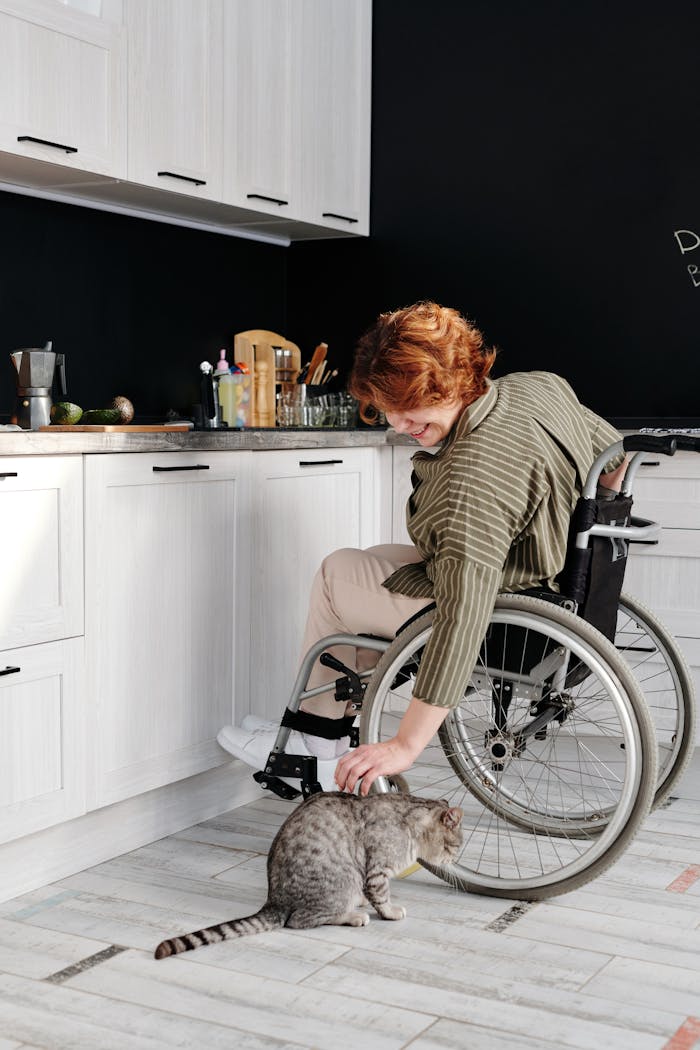Service Pets vs. Therapy Animals in Hospitals
It’s important to distinguish between service animals and therapy animals when talking about hospitals:
- Service Pets: Specially trained to perform specific tasks that directly support a person with a disability. For example, a psychiatric service dog might ground someone during a panic attack, or a medical alert dog might warn a patient of an oncoming seizure. Under the Americans with Disabilities Act (ADA), service pets are legally permitted in hospitals.
- Therapy Animals: Typically provide comfort, affection, and emotional support to patients. While they aren’t trained for specific medical tasks, they are often part of hospital therapy programs to reduce stress and improve mood.
Both types of animals provide benefits, but service pets play a critical, task-specific role in patient care.
How Service Pets Help Patients in Hospitals
1. Reducing Patient Anxiety and Stress
Hospital stays can bring fear and uncertainty. The comforting presence of a service dog for anxiety or PTSD helps patients relax, providing a sense of reassurance and making procedures and recovery more manageable.
2. Supporting Patients with Psychiatric Disorders
For patients hospitalized with conditions such as PTSD, depression, or schizophrenia, a psychiatric service dog plays a crucial role. They perform grounding tasks, interrupt harmful behaviors, and provide comfort during overwhelming moments, making patients feel understood and supported.
3. Providing Medical Alerts
Some service pets are trained to detect medical changes, such as drops in blood sugar, seizures, or irregularities in heart rate. In a hospital setting, this can be life-saving, alerting staff and the patient to act quickly.

4. Encouraging Mobility and Rehabilitation
During recovery, service pets can help motivate patients to move, walk, or engage in therapeutic exercises. This added encouragement often boosts progress and confidence.
5. Offering Consistency in Care
For patients who rely on their service animals outside the hospital, maintaining that bond during a hospital stay provides continuity of support, making the medical environment less disruptive.
How Service Pets Benefit Hospital Staff
Service animals don’t just support patients—they can also help healthcare workers:

- Fewer Behavioral Crises: Patients with psychiatric conditions may experience fewer outbursts when supported by their service pets.
- Improved Communication: A patient who feels calmer with their service dog present is often more receptive to treatment discussions.
- Additional Safety Net: Medical alert dogs can serve as an extra layer of observation, providing staff with timely warnings of patient distress.
Challenges and Considerations
While the benefits are substantial, hospitals must strike a balance between the presence of service pets and patient safety and infection control. Some considerations include:
- Ensuring service animals are well-trained and meet ADA requirements.
- Preventing access to restricted areas such as operating rooms or intensive care units.
- Accommodating patients who may have allergies or fears of animals.
Clear and comprehensive hospital policies are essential. They help ensure both the service animal and patient are supported safely, providing a sense of security for all involved.
Final Thoughts
The presence of service pets in hospitals highlights the growing recognition of how emotional and task-based support impacts recovery. Whether it’s a psychiatric service dog calming a patient before surgery or a medical alert dog warning of a seizure, these animals provide critical assistance that complements traditional medical care.
By embracing the role of service pets, hospitals can create a more compassionate, supportive environment for patients and staff alike—proving that healing is not just about medicine, but about care in every form.




